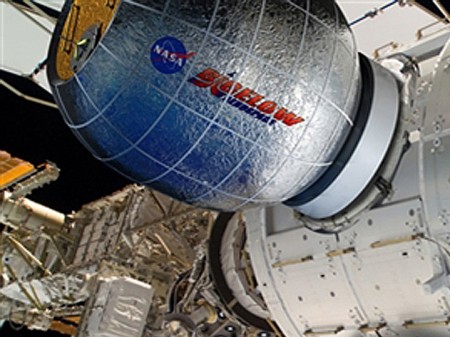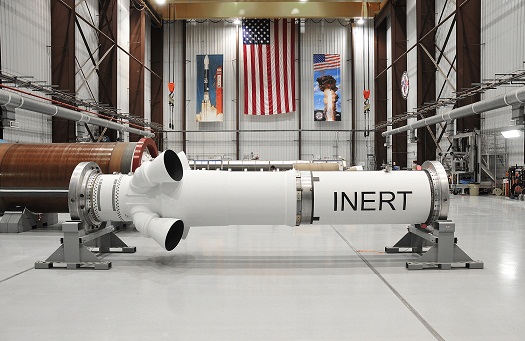April 10, 2015 – Part of NASA’s recent NextSTEP announcement included the awarding of projects to a number of companies focused on developing habitats for Deep Space missions. NASA’s strategic objectives in awarding three-years of funding to these companies includes its primary goal to extend and sustain human activities across the Solar System while creating innovative technologies to support that exploration.
The companies NASA has selected include:
- Bigelow Aerospace LLC of North Las Vegas, Nevada – will be putting its inflatable BEAM module (seen in the image below) on board the International Space Station (ISS) in 2015, a precursor to development of other inflatable habitats for use in Deep Space as well as for the building of a lunar base on the Moon’s surface. Who says NASA isn’t planning to go back to the Moon?
- The Boeing Company of Pasadena, Texas – has been an integral partner of NASA going back to the 1960s. The company along with SpaceX has been picked to provide a taxi service for American crews to reach the ISS starting in 2017. In Deep Space missions Boeing will help design habitat extensions for NASA’s Orion space capsule to boost its capability to support missions as long as 60 days.
- Dynetics Inc. of Huntsville, Alabama – is developing environmental control systems for NASA’s Deep Space initiatives. The new funding will focus on creating a rapid, efficient carbon dioxide removal system.
- Hamilton Sundstrand Space Systems International of Windsor Locks, Connecticut – is a prime contractor for NASA’s next generation space suits. The company specializes in environmental controls and life support and one can suspect that this will remain their focus under Next STEP.
- Lockheed Martin Space Systems Company of Denver, Colorado – is a principal logistics provider for ISS and will no doubt be developing logistical support systems for Deep Space initiatives as well as many of the components for Orion.
- Orbital ATK of Dulles, Virginia – is building the rocket motor (see image below) to be used in the launch abort system (LAS) for the Orion space capsule.
- Orbital Technologies Corporation of Madison, Wisconsin – is focused on environmental control and monitoring systems for space habitats.
The funding of projects focused on extending human life support systems for Deep Space missions will require in many cases the need for the companies to work closely together. This is far different than the NextSTEP contracts NASA awarded to companies developing advanced propulsion systems described in a previous blog.










